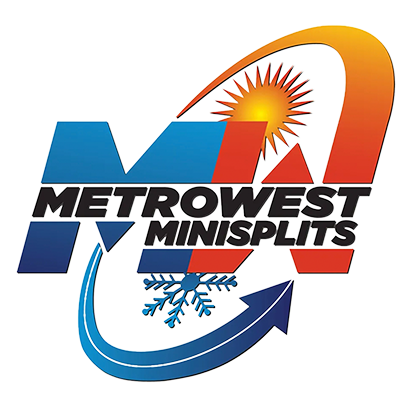Frequently Asked Questions – Heat Pumps, Ducted and Ductless
Ductless (Mini Split) Heat Pumps
What is a ductless mini split system?
A ductless heat pump, otherwise known as a mini split is a heating and cooling system that operates on electricity and heats and cools without ductwork. It consists of an outdoor condenser and one or more indoor air-handling units sometimes referred to as “heads” that are connected by refrigerant lines and electrical wiring.
How energy-efficient are mini splits?
Mini splits are highly efficient, often achieving SEER (Seasonal Energy Efficiency Ratio) ratings of 20+ and HSPF (Heating Seasonal Performance Factor) ratings over 10. They can save 30–50% on heating and cooling costs compared to traditional systems powered by fossil fuels.
Can a mini split heat and cool?
Yes, most mini splits are heat pumps and offer both heating and cooling built in, making them ideal for year-round comfort in Massachusetts' climate.
Do mini splits work in cold climates like New England?
Yes! New modern mini splits can achieve 100% of BTU output at outdoor temperatures of -5 to -15 degrees. These machines are designed and fully capable of heating your home throughout a New England winter. Many models perform well in Massachusetts winters with no backup heat required.
How many indoor units can be connected to one outdoor unit?
Depending on the system size and manufacturer, you can connect between 1 and 5 indoor units to a single outdoor unit in a multi-zone setup.
How are mini splits controlled?
Each indoor unit typically has its own remote control or wall-mounted thermostat. Many systems also support smartphone apps and smart home integration.
Are mini splits noisy?
No, mini splits are known for their quiet operation. Indoor units run as quietly as 20 30 decibels—quieter than a whisper. Outdoor units are routinely much more quiet than traditional A/C systems and can be placed near patios and relax areas without concern.
What does a mini split installation involve?
Installation is relatively non-invasive. It typically involves mounting the indoor unit(s), running refrigerant lines through a small hole in the wall, and placing the outdoor unit on a pad or brackets. This is why they are called “splits” the indoor and outdoor units operate independently but are connected.
Do mini splits qualify for rebates or incentives?
Yes. In Massachusetts, mini splits often qualify for Mass Save rebates and 0% interest HEAT loans, especially when replacing electric baseboard or oil systems. A Whole Home rebate is available for up to $16,000 for enhanced incentives, $10,000 whole home rebate for other income levels, and a Partial home rebate of $1250 per ton for each system installed.
How long do mini splits last?
With proper maintenance, a ductless mini split or ducted heat pump system can last 15–20 years or more. Much like a traditional heating/cooling system, of course yearly maintenance is recommended.
Ducted Heat Pumps
What is a ducted heat pump system?
A ducted heat pump is a central system that heats and cools air and distributes it throughout your home via ductwork—similar to a traditional HVAC system but using electric heat pump technology.
How is a heat pump different from a furnace or AC system?
Instead of generating heat through combustion, heat pumps transfer heat from one place to another, making them more energy-efficient and environmentally friendly and safer to operate.
Can I use my existing ductwork with a new heat pump?
Often yes, especially if your ductwork is in good condition and properly sized. However, it may need modifications for optimal performance and efficiency.
How efficient are ducted heat pumps?
Modern ducted heat pumps are very efficient, particularly when paired with variable-speed technology. Many qualify for ENERGY STAR ratings and additional government incentives such as tax incentives.
Can they handle cold Massachusetts winters?
Yes. Cold-climate rated ducted systems can operate efficiently down to subzero temperatures. Backup heat may be recommended for extremely cold days or legacy duct systems.
Are heat pumps suitable for large homes?
Absolutely. Ducted heat pumps can serve entire homes and are especially suitable when zoned for different levels or areas of the house.
Are ducted heat pump systems more expensive than ductless?
Upfront, they can be more costly, especially when new ductwork is required. However, in homes with existing ducts, the cost may be comparable or even lower
What maintenance do ducted heat pumps require?
Routine maintenance includes changing air filters, inspecting ductwork, and seasonal checkups to ensure refrigerant levels and components are in good shape.
Can I still use my current thermostat?
Possibly. Some heat pump systems are compatible with traditional thermostats, but smart thermostats designed for heat pumps are often recommended such as Eco-bee or Nest.
Do ducted systems qualify for rebates?
Yes. Like mini splits, ducted heat pumps can qualify for Mass Save rebates and HEAT loans at 0% and also rebates up to $16,000 when installed by a qualified contractor



